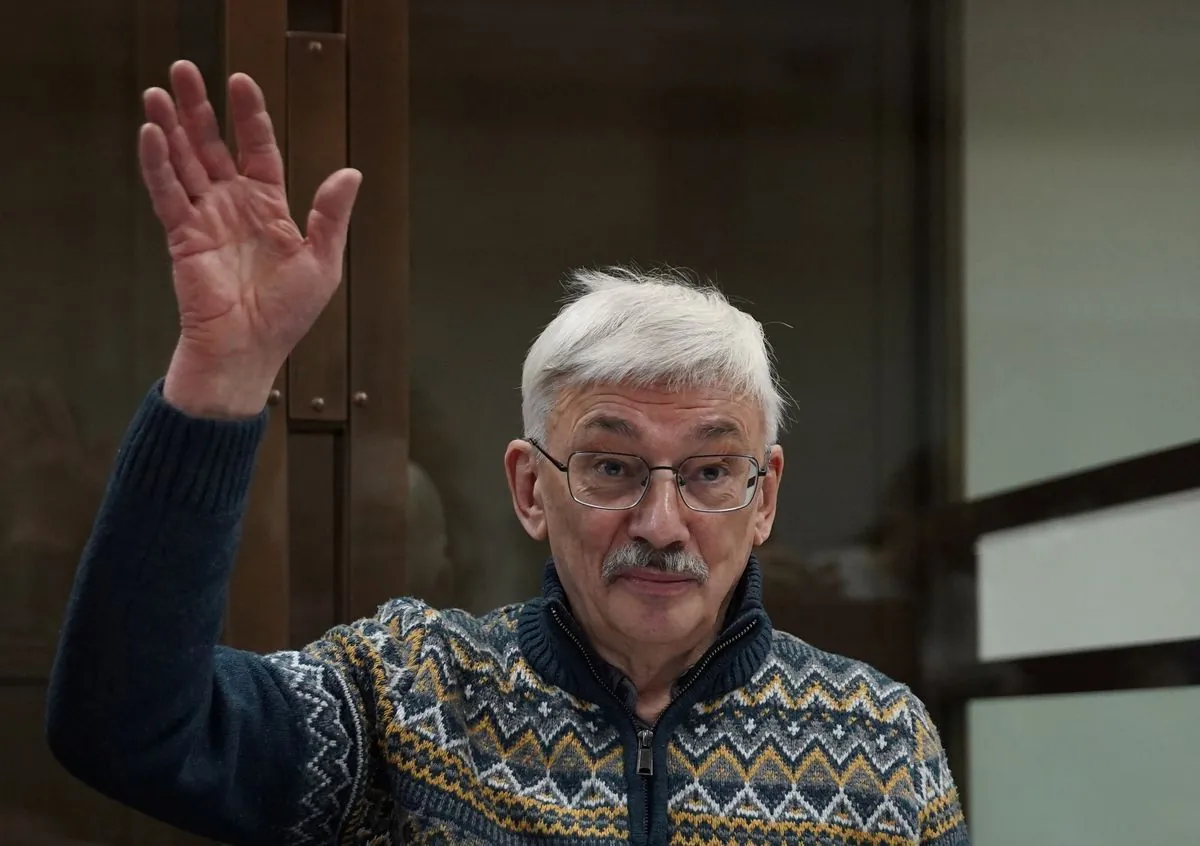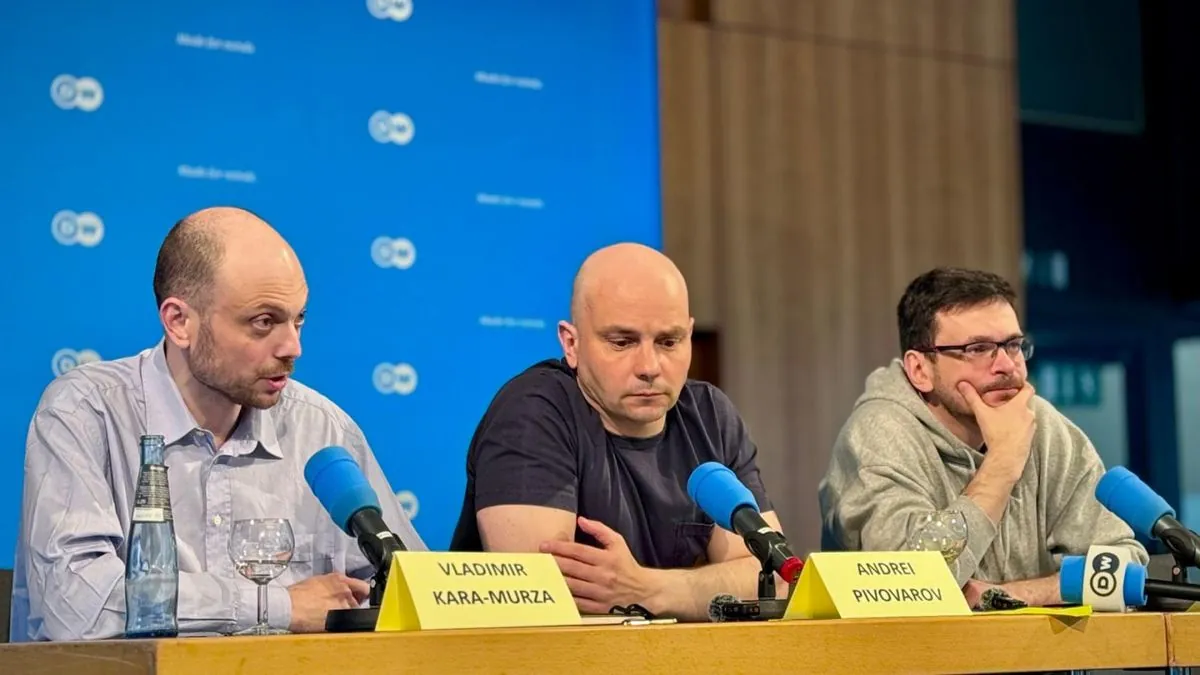Russian Dissidents Hint at Future Prisoner Swaps After Major Exchange
Recently freed Russian dissidents discuss potential future prisoner exchanges. Oleg Orlov, rights campaigner, speaks in Berlin about the recent swap and ongoing efforts to release more political prisoners from Russia.

In a recent press conference in Berlin, Oleg Orlov, a veteran rights campaigner, revealed that discussions about potential future prisoner exchanges have already taken place among recently freed Russian dissidents. This development comes in the wake of the largest prisoner swap between Russia and the West since the end of the Cold War in 1991, over 33 years ago.
The exchange, which occurred in the last week of July 2024, saw 16 individuals released from Russian and Belarusian detention, including Orlov, Vladimir Kara-Murza, Ilya Yashin, and U.S. citizens Evan Gershkovich, Paul Whelan, and Alsu Kurmasheva. In return, Russia received eight prisoners held in Western countries, among them a member of the FSB security service convicted of murder in Germany.
Orlov stated, "We had a conversation about the details among those who were exchanged, on the plane, when we were flying from Ankara to Germany." He emphasized the need for confidentiality in such matters but confirmed the existence of "concrete ideas" for future exchanges.

The 71-year-old Orlov, co-chair of the rights group Memorial, was serving a two-and-a-half-year sentence for "discrediting Russia's armed forces" before his release. Memorial, founded in 1989 to document Soviet-era repression, was banned in Russia in 2021 but went on to win a share of the Nobel Peace Prize the following year.
Orlov, along with Yashin and Kara-Murza, refused to sign a letter seeking a pardon from President Putin prior to their release. This stance underscores their commitment to their principles, even in the face of imprisonment.
The recent exchange highlights the ongoing issue of political prisoners in Russia. Human rights organizations estimate that over 500 individuals remain detained for political reasons as of 2024. Orlov expressed his determination to continue working from outside Russia for the release of more prisoners, stating that Memorial "cannot be destroyed."
"I can't say anything more concrete for now because you understand that any talks about an exchange require confidentiality for a long time. I will only say that there are concrete ideas, I won't say anything more."
This recent swap is reminiscent of Cold War-era exchanges, with Berlin historically serving as a site for such transactions. The largest Cold War swap involved 1,027 people in 1985, dwarfing the current exchange but highlighting the continued relevance of such diplomatic maneuvers.
The release of Gershkovich, the first American journalist arrested on espionage charges in Russia since the Cold War, and Whelan, a former U.S. Marine detained since 2018, has drawn particular attention to the plight of foreign nationals held in Russian prisons.
As discussions of future exchanges continue, the international community watches closely, hoping for further progress in securing the release of those still detained. The recent swap, while significant, serves as a reminder of the ongoing challenges faced by dissidents and the crucial role of international cooperation in addressing human rights issues.


































